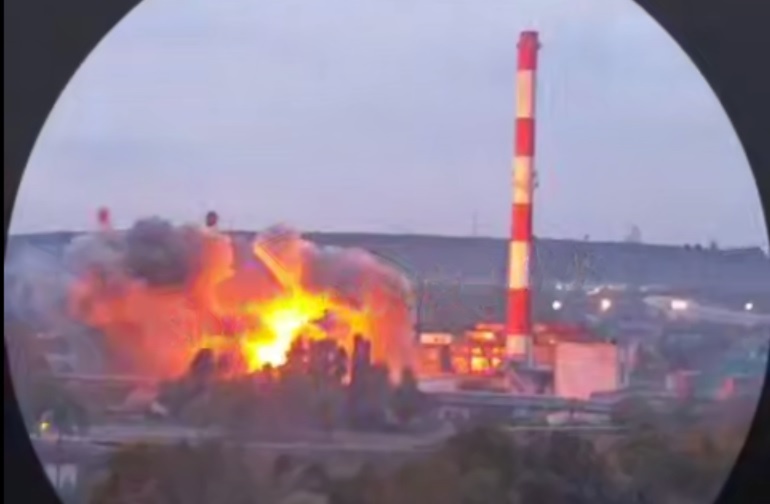The Russian city of Belgorod has experienced partial power outages following strikes on energy infrastructure, including the city’s thermal power plant, according to reports in local social networks.
The 60 MW Belgorod Thermal Power Station was among the facilities hit. The plant underwent reconstruction in 2007, when a gas turbine section with modern General Electric LM2500+ DLE HSPT units was built. Following the upgrade, the station’s installed capacity reached current electricity production levels and thermal energy output of 360.4 Gcal/hour.
The facility supplies thermal energy to Belgorod’s northern and central districts, covering 36.3% of the city’s heating needs. Originally coal-fired, the station switched to gas in 1958, which remains its primary fuel. In September 1962, the plant was integrated into the Unified Energy System’s parallel operation.
Missiles also struck the Luch electrical substation. The combined damage to both facilities left the Russian city partially without electricity.
The strikes follow remarks by Ukrainian President Volodymyr Zelenskyy at a Kyiv briefing on 27 September. “If they threaten blackouts, for example, in the capital of Ukraine, then they should know in the Kremlin that there will be a blackout in the capital of Russia,” Zelenskyy said.
On the night of 27-28 September, Russian forces launched an attack on Ukraine using over 500 drones and more than 40 missiles of various types. By the number of missiles deployed, this became one of the largest attacks in 2025.
In Kyiv, the Institute of Cardiology building was damaged, where two people died, along with a kindergarten. Four deaths are confirmed in the capital, including a 12-year-old girl. About 14 people were injured.
“A strictly symmetrical response to Russia’s strikes on infrastructure, to their terror, will accelerate the path to ending the war. The price for Russia will be high; it will feel the consequences of its military strategy, which is based on killing civilians. This is no longer 2022 with aerial terror. It would be better if Russia stopped the war,” head of the presidential office Andriy Yermak said.




